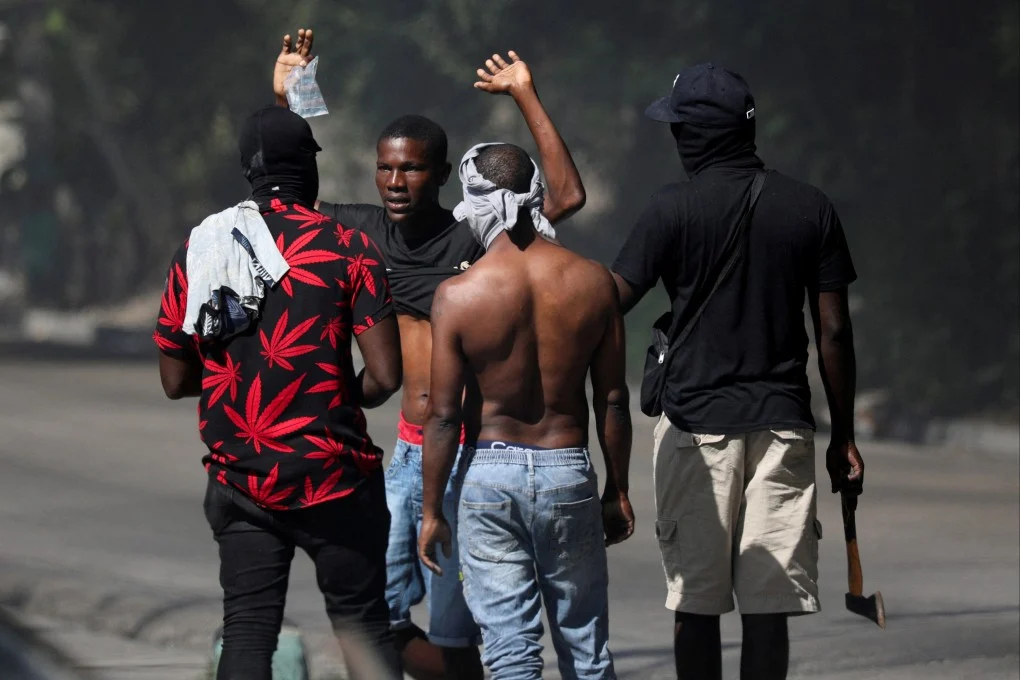In a significant act of defiance, residents of the affluent suburb of Pétion-Ville joined forces with the Haitian National Police (PNH) to repel a gang invasion, resulting in the deaths of at least 28 suspected gang members. The coordinated resistance marked a turning point for Haitians fed up with years of unchecked gang violence, as they took matters into their own hands to protect their community.
The attack, orchestrated by the “Viv Ansanm” gang coalition led by Jimmy “Barbecue” Chérizier—a former police officer turned gang leader—began in the early hours. Two trucks carrying heavily armed individuals attempted to breach Pétion-Ville, a neighborhood that had thus far been spared the chaos engulfing much of Port-au-Prince. One vehicle blocked the main entrance, while gang members sought to enter the area to wreak havoc.
Forewarned and prepared, residents armed themselves with machetes and hammers, erecting barricades and taking strategic positions. The resistance effort was spearheaded by a local movement, Bwa Kale, which has emerged as a grassroots defense against gang incursions. Residents stood shoulder-to-shoulder with the PNH, determined to protect their homes and families.
“We knew they would come, so we waited, captured them, and killed them,” said a local resident involved in the defense. Deputy police spokesman Lionel Lazarre confirmed that the confrontation led to the recovery of hundreds of rounds of ammunition. By dawn, bodies of suspected gang members lay strewn on the streets of Port-au-Prince, with some reportedly set ablaze by enraged citizens.
The daring defense in Pétion-Ville underscores the broader crisis gripping Haiti. Gangs now control approximately 85% of Port-au-Prince, leaving millions displaced and terrorized. Between July and September 2024, the United Nations recorded over 1,740 casualties due to gang violence, a 30% increase from the previous quarter. Haitians live in fear, as lawlessness spreads like wildfire in a country with no elected government since 2016.
The Haitian National Police, the country’s only official security force, remains overwhelmed. With just 9,000 officers to serve a population of over 10 million, the police force struggles to maintain order. Meanwhile, a UN-backed Multinational Security Support Mission (MSSM), led by around 400 Kenyan police officers, is hampered by limited funding and international support. Calls for expanding the mission into a full-scale peacekeeping operation have grown louder but remain unfulfilled.
Despite the overwhelming odds, the clash in Pétion-Ville has inspired hope among Haitians desperate for change. The involvement of local residents in the fight against gangs has demonstrated that collective action can yield results, even in the absence of robust institutional support.
“This is a message to the gangs: we will no longer stand idly by while you destroy our lives,” said a Pétion-Ville resident. However, the broader struggle for stability remains daunting. Haiti’s transitional council, tasked with leading the nation toward elections, faces significant challenges. Without a functioning government or long-term international aid, the root causes of gang dominance persist.
The recent events have reignited calls for urgent action from the international community. While the Haitian government and grassroots movements show resilience, experts warn that the country cannot overcome the crisis alone. Expanded peacekeeping support, economic aid, and political stability are critical to securing Haiti’s future.
For now, Haitians continue to fight back, proving that even in the darkest of times, the power of unity can challenge the forces of chaos. The battle for Pétion-Ville may be just the beginning of a broader fight to reclaim Haiti from the grip of gang violence.

